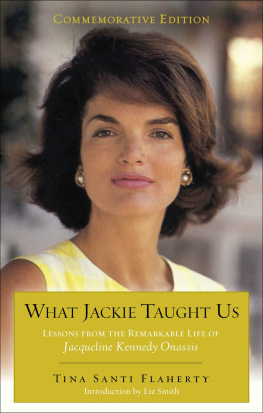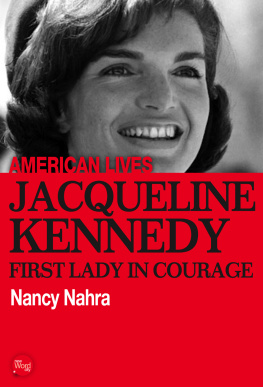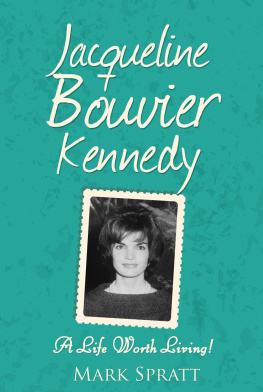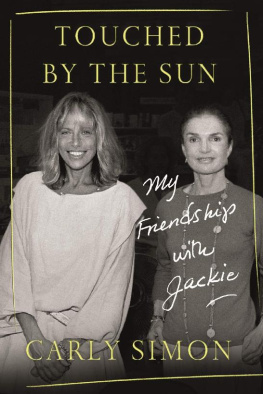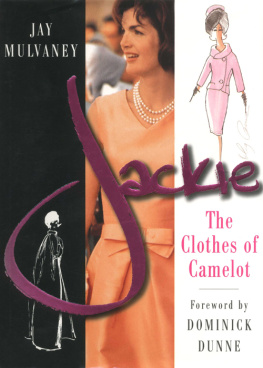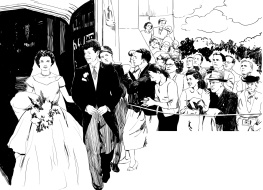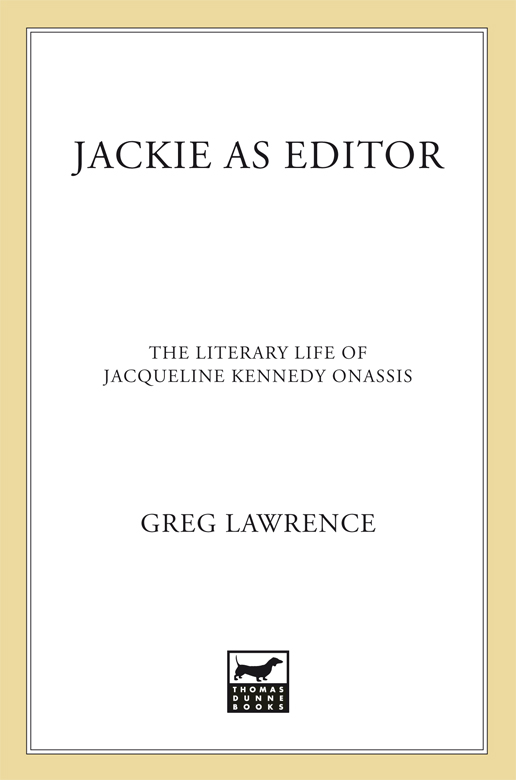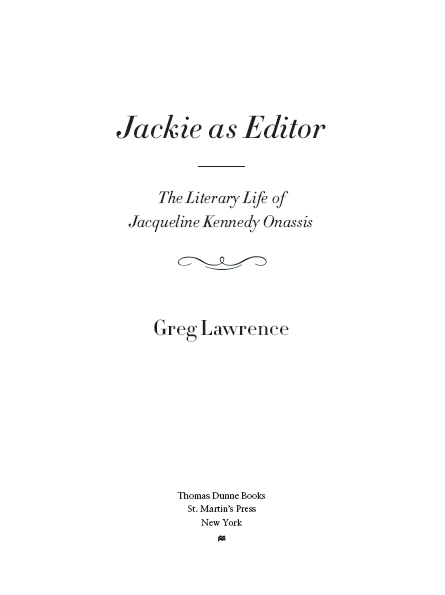
For Karen Chase, my anchor in the sky
Contents
Introduction
Jackies Secret Garden
If you produce one book, you will have done something wonderful in your life.
JKO
Norman Mailer once called her the Prisoner of Celebrity, aptly characterizing Jacqueline Kennedy Onassis as the ultimate object of media mythmaking; but Mailer was unaware that by the time he wrote those words, in 1983, the worlds most famous woman had already masterminded what was to be her escape from the constraints of fame. After two chapters of Jackies life had been defined by two extraordinary men, after she had been venerated by the world as the widowed First Lady and then vilified for marrying the unworthy Greek, after being portrayed as an extravagant, gold-digging spendthrift in thrall to jewelry and couture fashion, she was going to find fulfillment on her own terms, and she would do so, for the most part, comfortably outside the media glare and public awareness.
Whatever else she may have been during her lifetimetragic heroine, elusive sphinx, reluctant iconJackie also distinguished herself as an intensely dedicated career woman who left behind an impressive legacy of books. While Mailer described her as a princess lighted by a million flashbulbs, he underestimated how artfully Jackie had arranged her private and public lives, an instinctual survival strategy she perfected over time that would ultimately enable her to accomplish her own liberation. Jackie found a professional sanctuary in the world of publishing that was virtually unassailable, even for the paparazzi who staked out her office and boorishly delighted in stalking her.
Her literary bequest has been all but hidden in plain sight since her death, even with a sensational Sothebys auction that included much of her enormous personal library, because Jackie rarely allowed herself to be credited for her work as an editor. Her name appears on the covers of a scant few of the titles that she published, only occasionally turning up buried in her grateful authors acknowledgments. Yet Jackies books, along with her personal writings, are perhaps the best window we will ever have into her heart and endlessly inquiring mind.
In the aftermath of Aristotle Onassiss death, despite the obstacles and intrusive indignities of celebrity, Jackie managed to transform her public imagewhat she once dismissed as a little cartoon that runs along the bottom of your life one that doesnt have much to do with your life. By devoting herself to her career and role as mother, while carrying on with her commitments to the arts, the preservation of historic landmarks, and JFKs memory, she reinvented herself, adopting a more reserved style, while at times displaying the panache of a postmodern saloniste.
Contrary to the Greta Garbo mystique with which she was identified, Jackie was never reclusive. She possessed a grand spirit of adventure and harbored a sense of irony about life that served as a kind of armor, whether she was jogging in her beloved Central Park, mingling in society, or pursuing quixotic book projects that would take her all over the world. Determined to define herself by her actions, she was well aware that her every move would be scrutinized. During the last two decades of her life, photographs of her on horseback at shows in Virginia and New Jersey began to replace reports of indulgent shopping sprees and lunches at Orsinis and La Cte Basque. The public sightings eventually included her entrances and exits at the publishing houses where she worked. She was more likely to be seen visiting the New York Public Library than attending glitzy parties or traditional society events. There were many nights when she dined at home with her kids, whom she often described as the most important responsibility in her life, and then spent the rest of the evening diligently at work in her library.
A savvy witness to the last centurys golden age of publishing as it gave way during her career to megaconglomerates and rampant commercialism, Jackie managed to create an impressive body of work, shepherding more than one hundred titles, despite the undermining corporate culture of at least one of the two publishing houses that employed her. As the bottom-line exigencies of marketing triumphed over the traditional domain of editorial discretion and power, she championed books that were dear to heart and fought fiercely for them. She recruited her own private army, enlisting her authors and collaborators as guardians of Camelot, as it werethat lofty Arthurian conceit, which she suggested to historian Theodore H. White for his JFK eulogy that appeared in Life magazine after the tragedy in Dallas. Although Jackie was exercising poetic license with her reading of history, she quietly continued to nurture the concept of Camelot through the books she helped create, with many of them hearkening back to themes from her White House years.
By design, Jackies editorial efforts were to be anonymous. Regardless of how much work she did on a manuscript, she was old-school and adhered faithfully to the self-effacing credo espoused by the legendary editor Maxwell Perkins: The book belongs to the author. She was part of that tradition of editors who established relationships with their authors that went beyond the formalities of collaboration and commerce. In a publishing world that no longer exists, these editorial stewards of an earlier generation took an interest in the lives of their writers and established lifelong friendships with them, which meant more than simply breaking bread with them or lending them money when they were in need. Like Perkins, Jackie held fast to the belief that there could be nothing more important than books, and she revered their creators.
A former publisher of Rolling Stone, New York, and New West magazines, Joe Armstrong was a trusted friend of Jackies during her later years and recounted a telling moment with her. I remember being with her at the Vineyard the last summer she was there. She had just had turned sixty-four. I remember in her living room she had all these books, and she said, These are my other best friends.
Extreme modesty as much as natural shyness contributed to her much-publicized penchant for privacy. As an editor, Jackie displayed a playful mastery of the publishing arena, while acting as advocate for her authors. Her writers and books were the means through which she would express by proxy her ideals in the world of belles lettres, ideals she forged in the personal and historical realities of her own past, even as it was transformed into myth before her eyes.
Jackie, like most of us, had her share of idiosyncrasies, foibles, and character flaws, and there was to be contention along the way with some of her authors and colleagues. But after committing a personal affront or gaffe, she was humble enough to offer apologies, often with flowers and handwritten notes. It should come as no surprise that, as she was an immensely coveted figure in the social marketplace, people would attempt to take advantage of her, and at times she felt compelled to banish some erstwhile friends and collaborators from her world. Anyone who betrayed her confidence to the press was to be thrown out of the palace, as she put it to one of her colleagues. It wasnt so much ego that led her to cut ties as the insecurities and emotional burdens she carried. Having to inure herself to a past that had been devoured by the first television generation was no easy feat. Jackies stepcousin, the esteemed author Louis Auchincloss, put it simply: Its very hard to be the most famous woman in the world.


